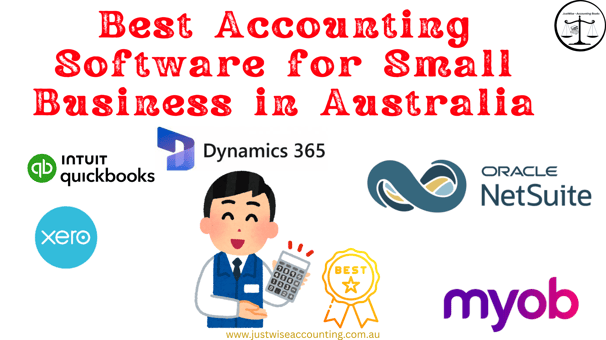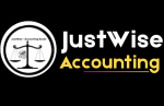Best Accounting Software for Small Business Australia | Xero, MYOB, Excel Compared
Comparing Xero, MYOB, and Excel for small business accounting in Australia. Discover which software suits your business stage and needs.
Justwise Accounting
2 min read


What’s the Best Accounting Software for Small Business in Australia?
Choosing the right accounting software can make a major difference to your business operations — not just for staying compliant with the ATO, but also for saving time and making better financial decisions.
So what’s the best accounting software for small businesses in Australia? The answer depends on your size, industry, budget, and whether you’re doing your own bookkeeping or working with a bookkeeper.
Here’s a breakdown of the top options and how to choose the right fit.
1. Xero: The Leading Choice for Small Businesses
Is it worth getting Xero?
For most small businesses in Australia — yes. Xero is built with business owners in mind and is widely used by accountants and bookkeepers.
Key benefits of Xero:
Live bank feeds for easy reconciliation
Invoice creation and tracking
Payroll, GST, and BAS functionality
Access anywhere via the cloud
Seamless collaboration with your accountant or bookkeeper
Best for:
Sole traders, service businesses, consultants, e-commerce, and those who want a scalable solution.
2. MYOB: Trusted Legacy Software with Strong Payroll Features
Why choose MYOB over Xero?
While Xero is the newer player, MYOB still has a strong hold on the Australian market, particularly in industries like construction, manufacturing, and retail.
Advantages of MYOB:
Robust payroll tools
Industry-specific features (especially for inventory-heavy businesses)
In-house support based in Australia
Offline access options (with MYOB AccountRight)
Best for:
Businesses with complex payroll, inventory, or those already familiar with the MYOB environment.
3. Excel: Budget Option for Micro Businesses
For start-ups or sole traders on a tight budget, Excel remains a low-cost option for basic bookkeeping. It’s flexible, customisable, and requires no monthly fees — but it does require discipline.
Limitations of Excel include:
No automatic bank feeds
No built-in tax or compliance functions
High risk of manual errors
No collaboration features with bookkeepers or accountants
Best for:
Freelancers or hobby businesses with very few transactions per month.
What Are the Weaknesses of Xero?
While Xero is powerful, it’s not perfect. Some of the common complaints include:
Cost: Monthly subscriptions can add up as you grow
Learning curve: Some users need time to become comfortable
Limited offline access: It’s cloud-based only
Complex setup for industry-specific workflows
That said, many of these weaknesses can be mitigated with the help of a professional bookkeeper during setup and training.
How Do You Decide Which Account to Set Up in Accounting Software?
This decision depends on:
Your business structure (sole trader vs company)
The type of income and expenses you generate
Your tax obligations (GST-registered, employing staff, etc.)
Whether you or your bookkeeper is maintaining the system
Most software comes with default chart of accounts templates. However, these often need to be tailored — especially if you want accurate financial reports or to prepare for tax time.
At Justwise Accounting, we guide clients on which accounts to use or customise based on their industry, goals, and ATO reporting needs.
Stay in Touch
© 2025 JustWise Accounting. All rights reserved. ABN 85 581 353 385
⚠️ We respect your privacy. Unsubscribe anytime. (under subscribe button)
Serving Australia-wide
Justwise acknowledge the Traditional Owners of the lands where we operate and pay respect to Elders past and present.
